Peugeot e-Expert to complete PSA’s electric van trio
Following the Opel Vivaro-e and the Citroën ë-Jumpy, Peugeot has now also presented its version of a PSA battery-electric transporter, the e-Expert. The technology is identical to that of its two sister models. Peugeot plans to announce prices in June.
The drive train and the batteries are the same for all models: the electric motor has an output of 100 kW and is the same as that in the Opel Corsa-e, the Peugeot e-208 and the e-2008. In contrast to the small cars, PSA offers the vans with two battery sizes, each with 50 and 75 kWh. The smaller battery has a range of 230 WLTP kilometres. The larger one has a range of up to 330 kilometres.
With DC charging station with an output of at least 80 kW, the e-Expert can be charged to 80 per cent in 30 minutes with the small battery, and 45 minutes with the large battery. Like the Opel Vivaro-e, Peugeot offers a three-phase AC charger with 11 kW in addition to the standard AC charger with 7.4 kW (single-phase).
Peugeot provides further details on e-Expert charging times, which will be of interest. At a household socket, Peugeot states the duration of a full charge at 31 or 47 hours (8 amps), with a 16A outlet, as is the case in many companies, it is still 15 or 23 hours. If the vehicle is driven almost empty, an overnight depot charge may not be sufficient – with a 7.4 kW wall box (7.5 or 11.3 hours) or the optional 11 kW wall box (5 or 7.5 hours) this is the case.
Peugeot calls the three body variants Compact, Standard and Long. The load volume is between 4.6 cubic metres in the Compact and 6.6 cubic metres in the Long. However, the overview published by Peugeot also shows that the previously mentioned payload of 1,275 kilograms only applies to the Compact version of the e-Expert. For the 4.96 metre-long Standard, the maximum payload is 1,238 kilograms, and for the 5.31 metre-long Long a maximum of 1,210 kilograms. And that’s just with the small 50 kWh battery: with the 75 kWh battery, the maximum load drops to 1,002 (Standard) or 1,005 kilograms in the Long. The 75 kWh battery is not offered at all for the 4.60-metre compact version.
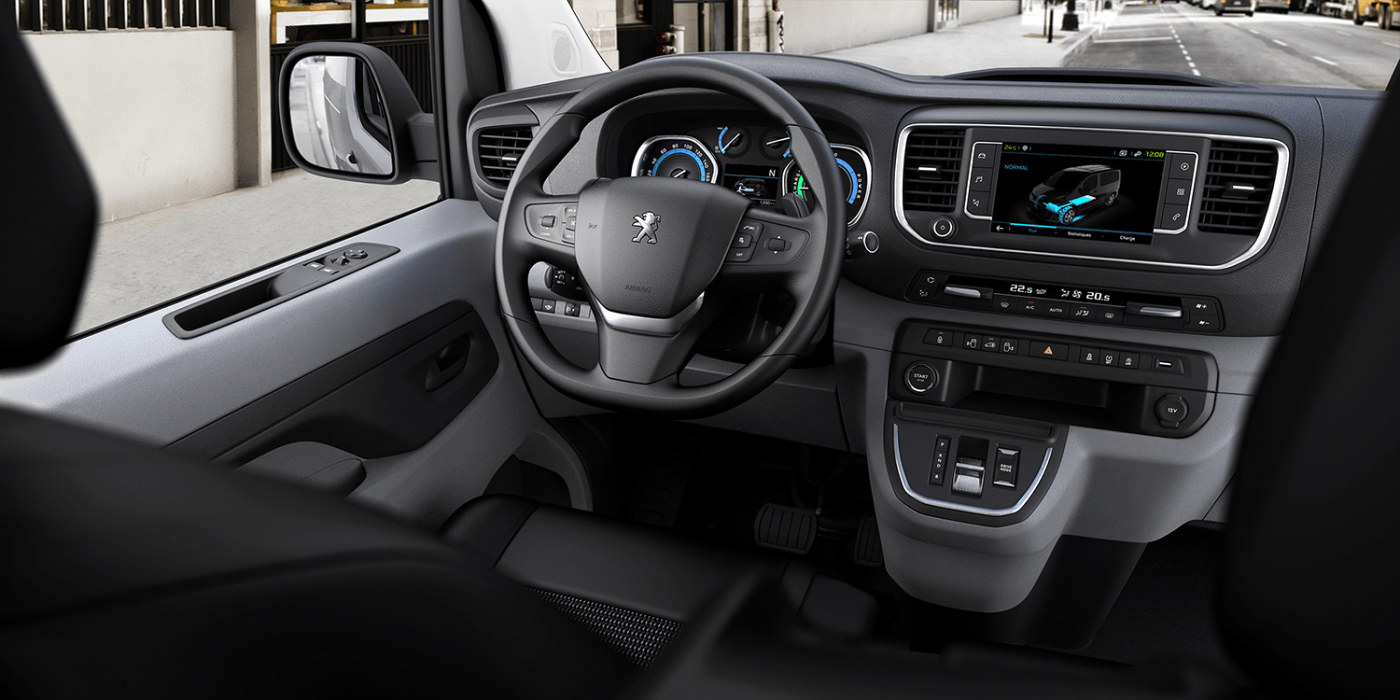
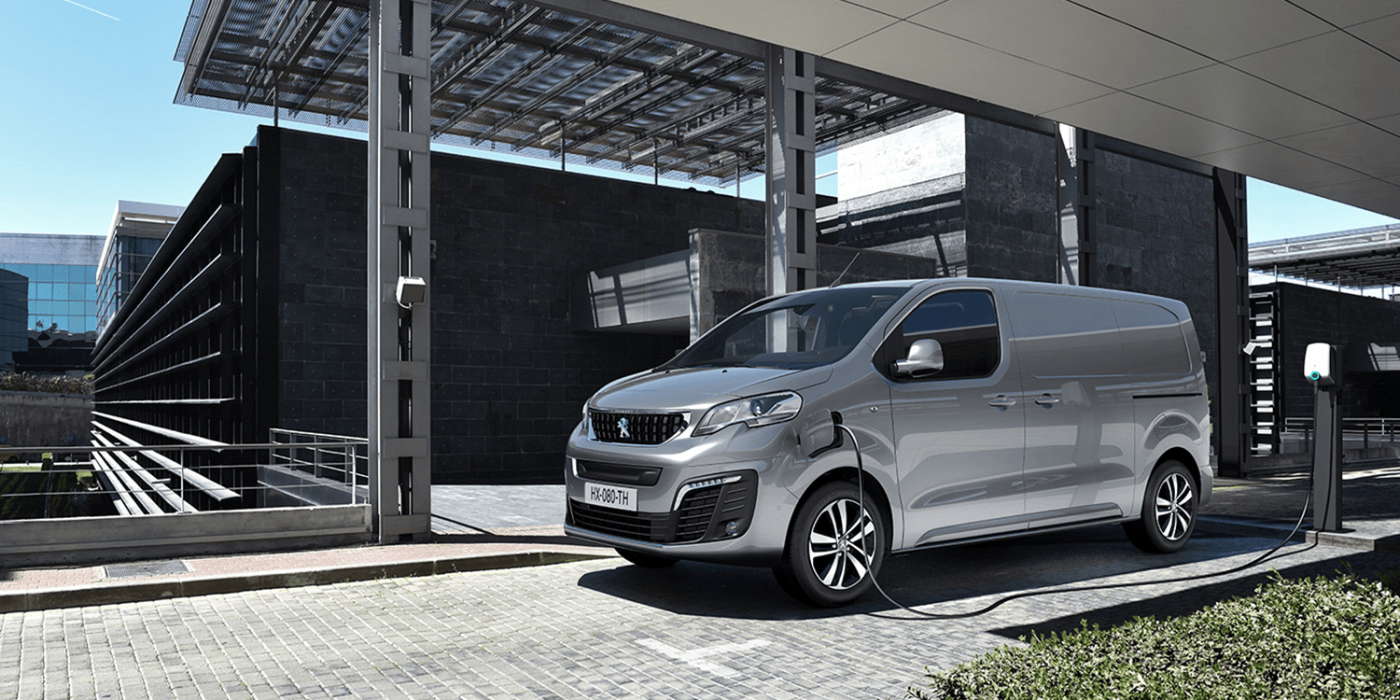
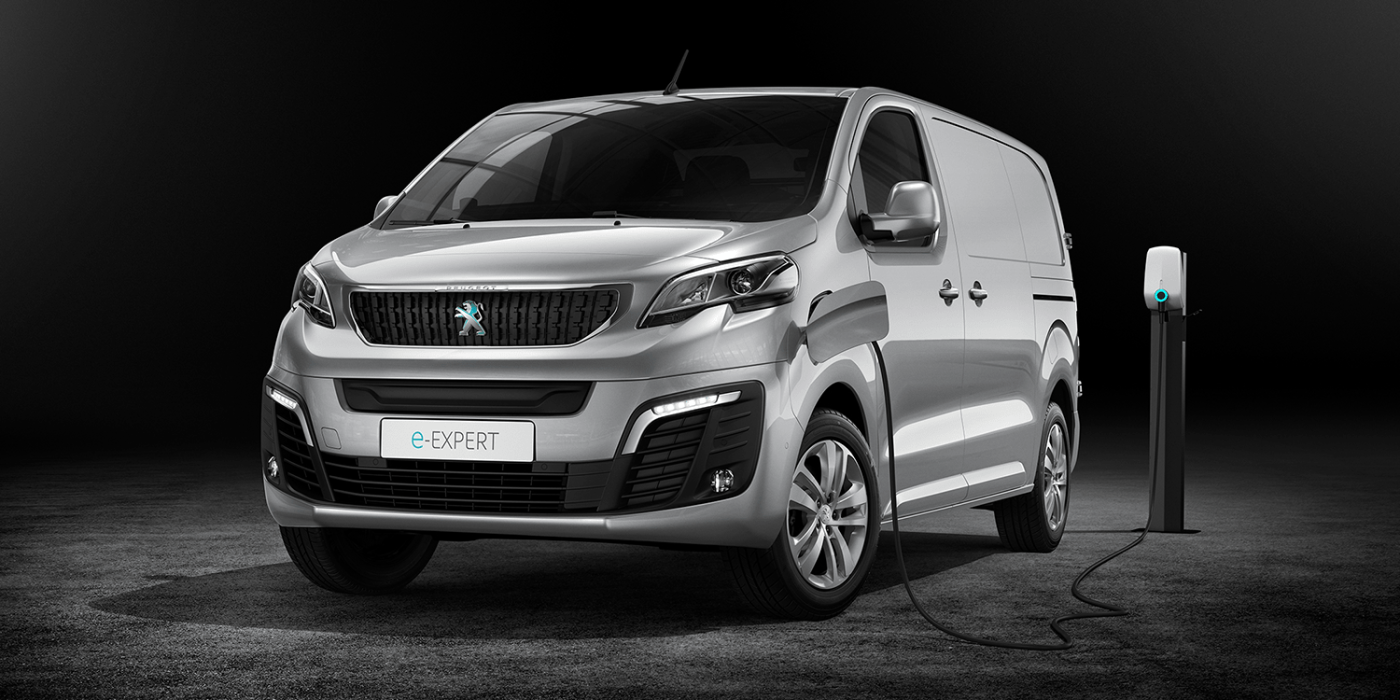
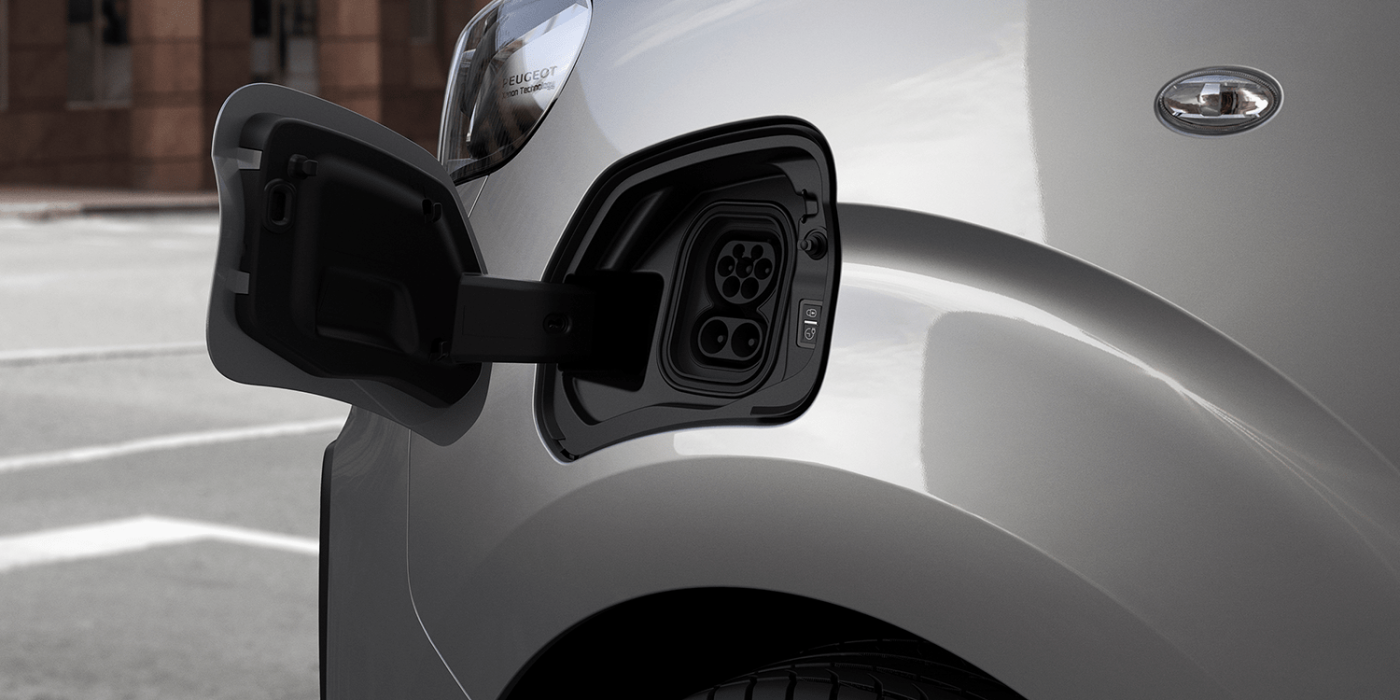
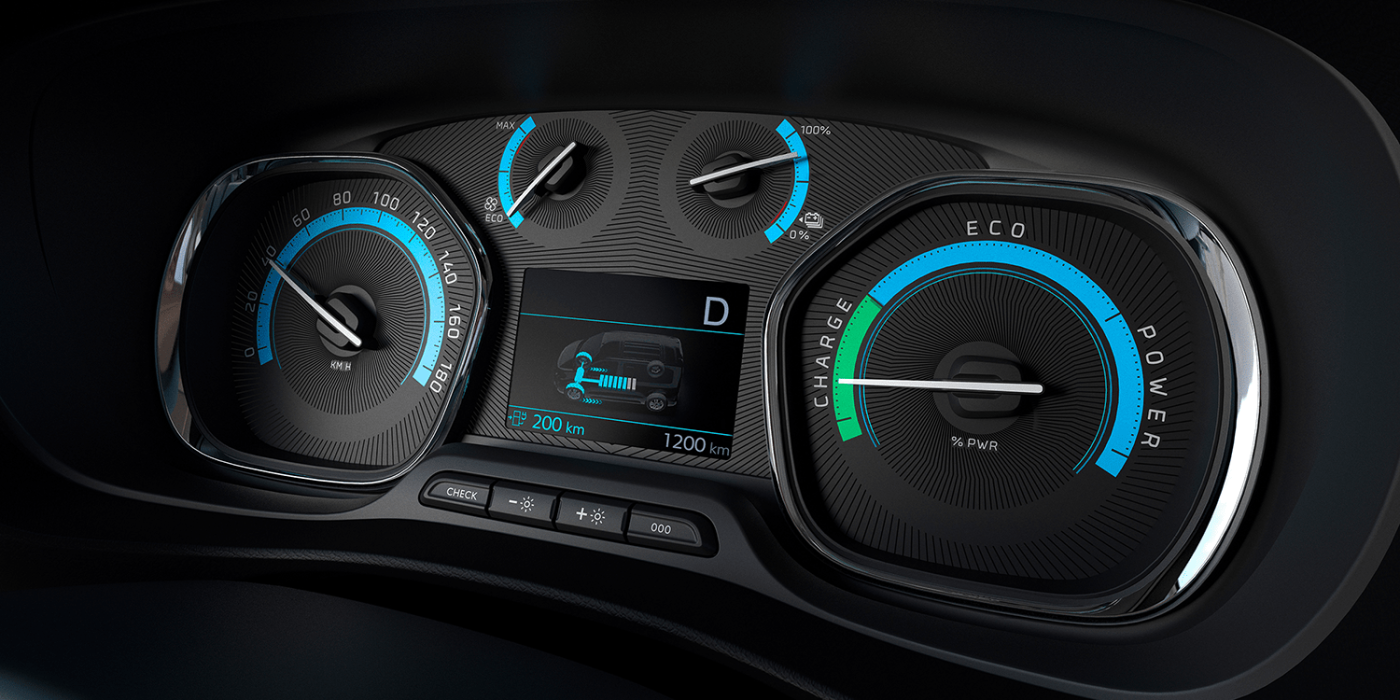
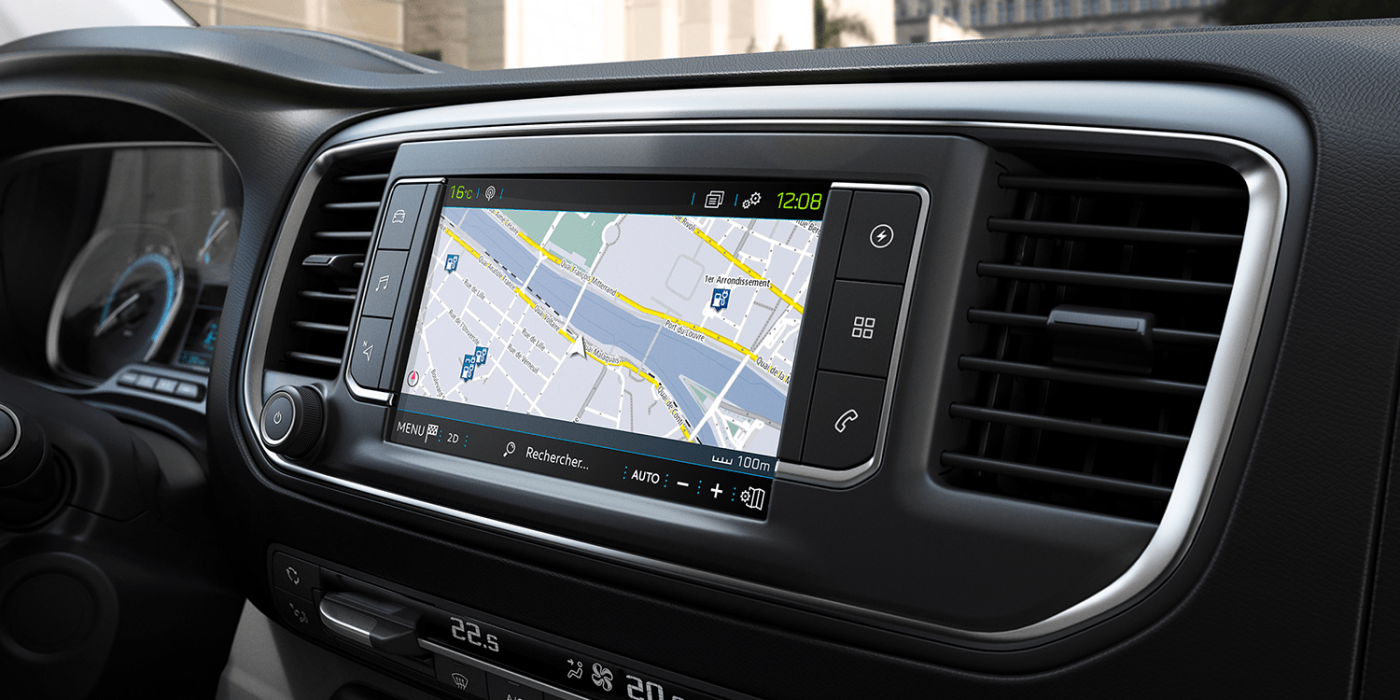
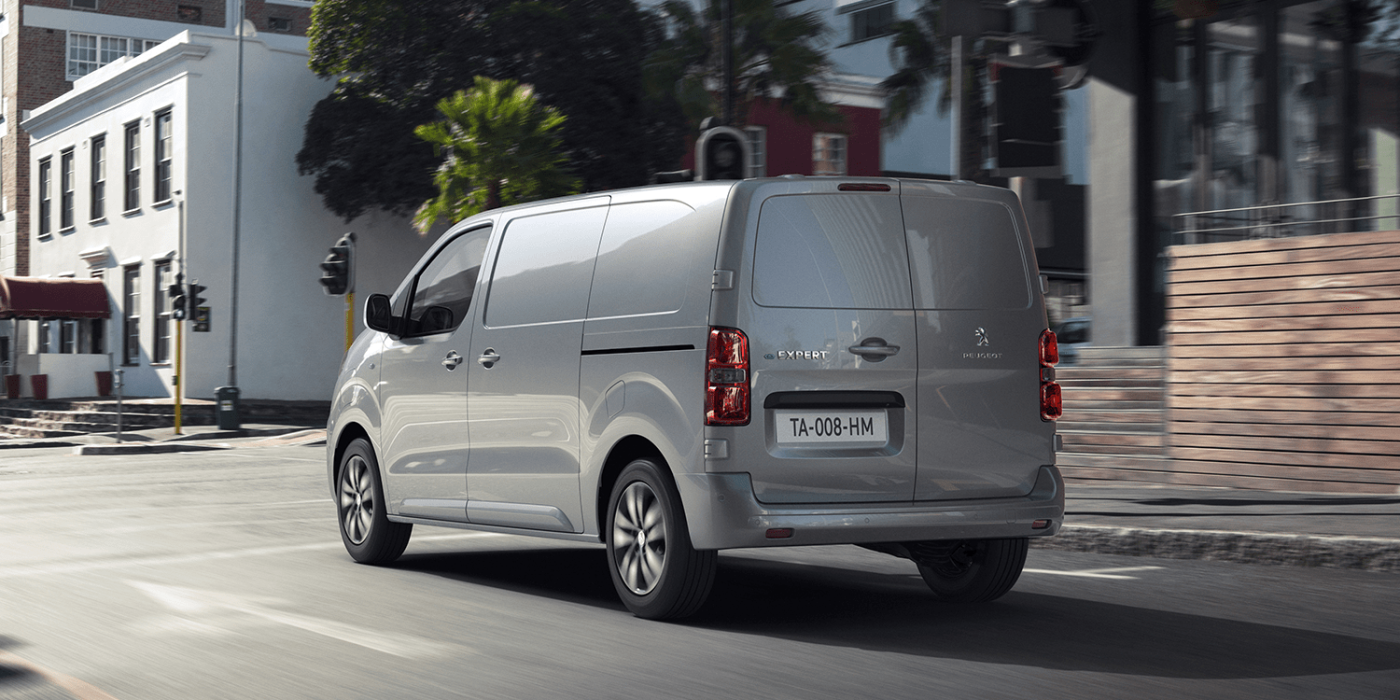
The modifications compared to the combustion versions are minimal, but quite interesting: Of course, on the one hand, the charging hatch is located above the left front wheel, but there are also some changes in the interior. For example, all versions of the e-Expert are equipped with an electric parking brake, so the classic handbrake lever is no longer needed and creates a little more space in the footwell. Besides, the instrument cluster has been adapted, and some electric-specific displays have been added. Like its sister models, the e-Expert is linked to the respective app and digital services of the brand.
The e-Expert is scheduled for market launch in the second half of 2020. Peugeot intends to quote prices at the start of the order process in June.
| Technical Data: | |
|---|---|
| Performance | 100 kW |
| max. torque | 260 Nm |
| Top speed | 130 kph |
| 0 – 100 kph | 13,1 seconds |
| Combined range (WLTP) | 230 km (small battery), 330 km (large battery) |
| Consumption (WLTP) | N/A |
| Battery capacity | 50 kWh or 75 kWh |
| Charging capacity DC | N/A |
| Charging time DC (80 %, CCS) | 30 minutes (small battery), 45 minutes (large battery) |
| Charging capacity AC (Type 2) | 7,4 kW (single phase) |
| Charging time AC (Hours to 100 %) | 7,5 or 5 (small battery), 11:20 or 7,5 (large battery) |
| Load capacity | Up to 1.275 kg |
| Loading space (Transporter) | 4,6 to 6,6 m³ |
| Tow capacity | Up to 1.000 kg |
presseportal.de (in German)




2 Comments